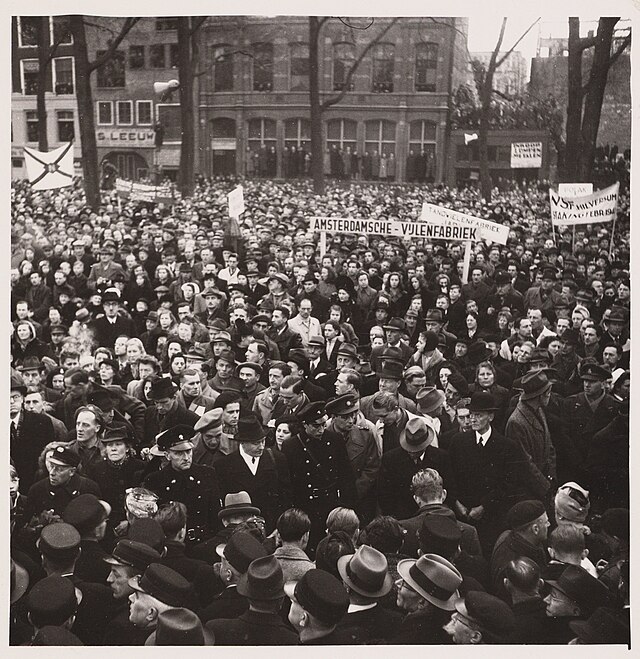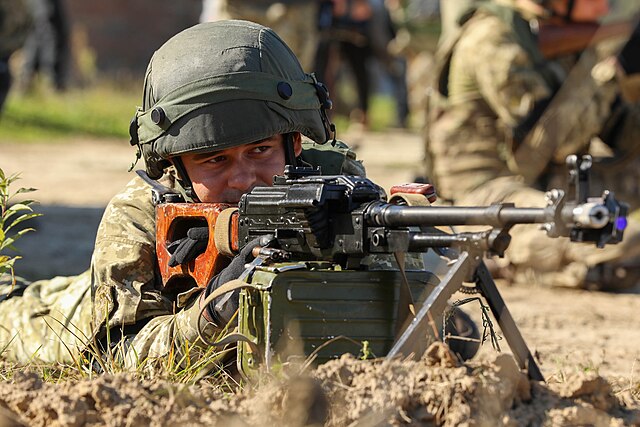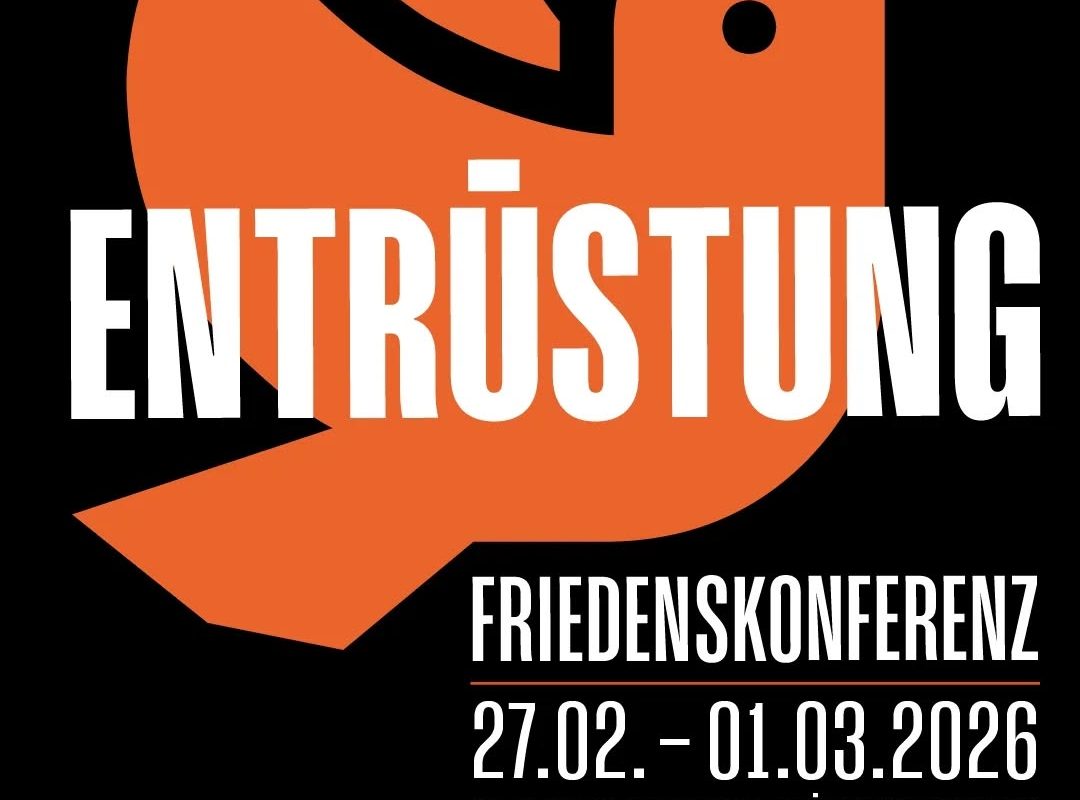A war is always a moment of truth, and it is truly shocking to see so many (former) comrades collapse like a deck of cards under the impact of events. In these last few days I’ve seen everything on the miserable world of social media, from calls to purge “Putinists” (whatever that is) from the Left to those who think of themselves as particularly radical for demanding harder sanctions against Russia (capital of course is against that, you see, so they think this gives their reckless calls for escalation an anti-capitalist flair).
Many are circulating an obscure letter by the proverbial Ukrainian leftist that accuses the “Western Left” of being in cahoots with Putin for pointing out that NATO is still a thing (there is probably also a proverbial Ukrainian leftist in the Donbass who is imploring us to support Putin`s invasion as a continuation of the Red Army’s assault on Berlin). Shocking as all of this is, however, understanding should come before judgement. Where did it all go wrong? Here’s a modest attempt in that direction.
Twenty years ago, we experienced a relative revival of the Left under the twin impact of both the alterglobalization movement as well as the movement against the war on Iraq. While it was easy to be against George W. and the neocons in this unipolar moment, it was not always easy to analytically discern the root causes of things like the “war on terror”.
A minority of us made the argument that the state and imperialism were still a thing, and that the fact that we now lived in a unipolar moment did not mean that the state was irrelevant or that challengers to this order would not ultimately appear. Indeed, we argued that the war on Iraq was not the result of neocon-groupthink but a badly organized flight forward to prevent the emergence of such challengers to US hegemony.
But a much significant proportion of those radicalized held on to another theoretical framework, based more or less on Toni Negri’s Empire. It argued that interstate rivalries were a thing of the past, and things like Iraq were merely police operations undertaken on behalf of a networked and neoliberalized global capitalist class (forgive the under-sophistication, but this general description holds true about the direction of the argument). It was Kautsky’s ultra-imperialism theory reloaded.
The political conclusions many drew were manifold. First, it was passé to talk about imperialism. If you did that, you were labelled an authoritarian Stalinist of the “primary/secondary contradiction”-variety. I remember a history professor during my first semester at uni in 2003, whose course basically consisted of praises to Empire as the “21st century’s Communist Manifesto”.
Another lesson was quite reformist in the literal sense – it was to support European integration as a benign project that merely needed to be reformed in a progressive direction. This was basically the line followed by Syriza, Die Linke, and others in Europe, with all the known consequences.
Accompanying Negri “domestically”, was Holloway`s Change the World Without Taking Power, a manual on how to turn your low impact on actual politics into a moral asset. Under the impact of Occupy, many Hollowayists would suddendly discover that politics matters after all and become self-declared left populists, but that’s another story.
Iraq was a disaster. It accelerated the process it sought to prevent. Regional powers were strengthened – Iran, the Gulf Cooperation Council, Turkey, and others. The US overstretch meant others like Russia and China found a breathing space and could challenge the US up to a certain degree.
Then the 2008 war in Georgia happened. Market capitalist Russia could tolerate this much globally, but not in what it regarded as its own backyard – the post-Soviet space. It maintained its own sphere of influence there after 1991, with “peacekeeping” operations in the Caucausus, Moldavia and Central Asia.
Now, the US was encroaching on that space too, and was even dangling NATO membership to the Ukraine, the buffer zone between Russia and post-expansion NATO (as to why, check out Brezinski`s “Grand Chessboard” among others). Every Western action resulted in an increasingly assertive counterreaction, Crimea and Syria to name the most important ones.
I don’t know exactly what went on in the heads of those who thought imperialism was a thing of the past, but it looks like two thought processes kicked in, which are now merging into one. If the whole world was so decentered and networked, it didn’t really matter where you were. And if – channelling Holloway – your political impact on your own rulers was near zero, you had to denounce everything and everyone, become a propagandist or worse, hope your own rulers could be persuaded to do something about what you thought was wrong in this or that part of the globe.
So through the rabbit hole of social media we had those great exercises of moral blackmail against a “Western left”, or “tankies”, or what have you not, that clinged on to an archaic anti-imperialism. We were told, Russia was also “imperialist” (as if this was news for us), even as they called for imperialist no-fly zones in Syria and drew ridiculous analogies to the Spanish Civil War.
On the other hand, it looks like the processes of electoralism and institutionalization that many from the noughties generation went through got the better of them. If you make peace with the fact that your own political impact is close to zero, then what’s left is to opportunistically attach yourself to any kind of “popular” (i.e. manufactured) mood, hoping to become its progressive wing and win this election or enter that coalition in government. Politics transforms itself into mere marketing – “I’m also against NATO, but it’s not exactly what people care about at the moment”.
So, now we have many from that side who are shocked that Russia, an imperialist state, would do an imperialist thing. And this leads to those insane Paul Mason-types who pass as left-wing but call for strengthening the “nuclear deterrent”, to sound credible. AOC is calling for the authorization of military force (i.e. World War III) before congress, even as no serious US policymaker is contemplating this at the moment.
They effectively argue that, it’s not all imperialisms that should be condemned now; it’s that *only* Russian imperialism should be condemned. For some, Western countries are now flawless democracies and not imperialist any more, whereas other condemn NATO and Western imperialism solely in the abstract, fully detached from any analysis of the concrete situation unravelling in the Ukraine. Truly, their condemnations reveal themselves to be simply justifications for their “own” imperialism, except they don’t call it like that.
We live in dark times and darker times are still ahead. This senseless war should end immediately. We need disarmament and de-escalation on a European and global level. Solidarity and fighting our own rulers, whether in Washington, London, Berlin, Mumbai, Damascus, Kiev or Moscow, must prevail.




